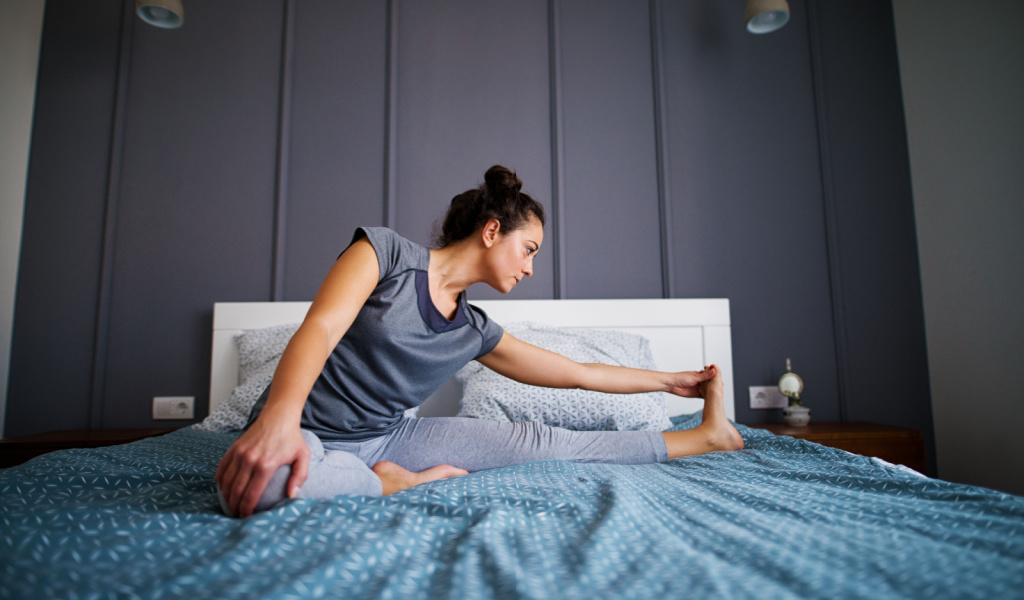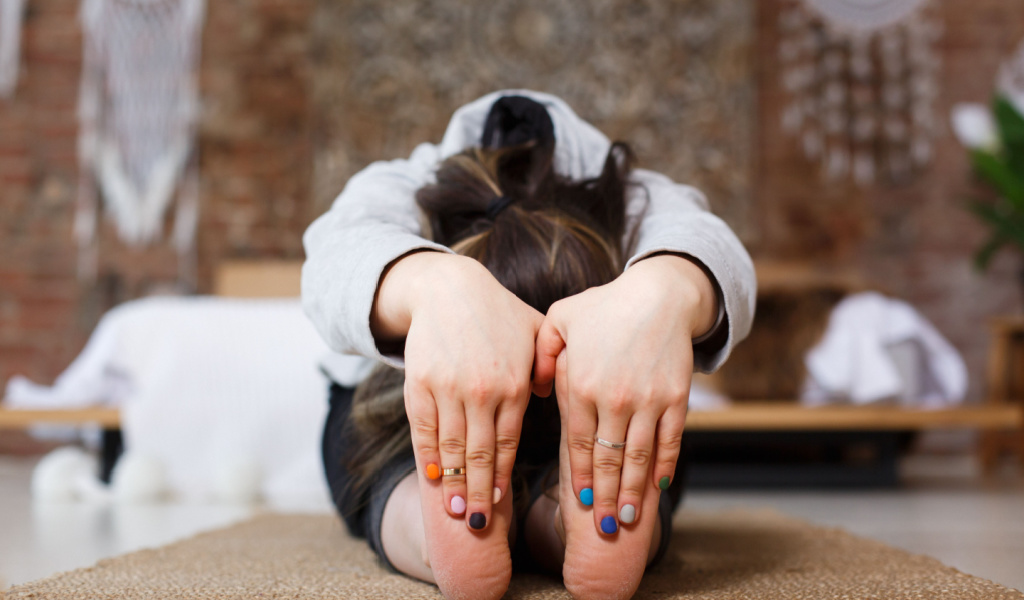While we all know regular exercise is crucial in maintaining a healthy lifestyle, a commonly held misconception is that exercising before bedtime is not a good idea. However, research has another thing to say.
Exercise helps promote relaxation and helps reduce stress, which can help the body rest and help you fall asleep. Your body’s temperature also rises during exercise, making you feel sleepy as it starts to drop again. However, it’s important to pick the right time and kind of activity to do before bedtime to improve your sleep quality.

The Experts Weigh In
Several studies conducted over the past few years have helped experts reach a better understanding of how exercising before bedtime can affect sleep.
A 2020 study on a group of 12 healthy males over three separate nights found no influence on sleep quality when they did either 30 minutes of moderate-intensity aerobic exercise, 30 minutes of moderate-intensity resistance training, or no exercise at all 90 minutes before bedtime. The participants slept in the lab during the study and had their core body temperatures and sleep quality measured.
The same year, another study that involved 16 participants, both male and female, came to the same conclusion. Here, the participants partook in moderate-intensity workouts 2-4 hours before bedtime but found no difference in sleep quality.
However, a 2019 review of 23 different studies published in Sports Medicine established that there was a positive correlation between evening workouts and sleep quality. The review found that as long as the exercise was moderate to low in intensity and concluded at least 1 hour before bedtime, it helped people fall asleep faster and spend more time in deep sleep.
Best Types of Exercise Before Bedtime
When exercising before bedtime, it’s crucial to pick the appropriate kind of exercise so that it does not affect your sleep quality. The same 2019 Sports Medicine study stated that high-intensity workouts in the evening can make it harder for someone to fall asleep, resulting in shorter sleeping times. This is because vigorous exercise can stimulate your nervous system and raise your heart rate too much, making it harder for your body to wind down and fall asleep.
Therefore, it’s best to stick to light exercise in the evening and ensure you finish your workout at least one hour before bedtime. Moderate-intensity exercises include light swimming or biking, walking, yoga, and stretching. High-intensity workouts that must be avoided in the evening include running, intense swimming, jumping rope, weightlifting, HIIT workouts, cycling, etc.

Exercise During the Day
Exercise is a crucial aspect of leading a healthy lifestyle. Therefore, it is best to include at least 30 minutes of moderate-intensity exercise, such as cardio or aerobics per day, or 150 minutes per week. If you are a beginner who finds it difficult to commit to 30 minutes at a stretch, you can even break into two 15-minute sessions daily. You may find it easier to keep a consistent routine if you pick an activity you enjoy. You may also look for local biking groups or exercise classes to help you stick to a schedule.
If you prefer vigorous exercise, you only need 75 minutes of high-intensity weekly exercise to hit the recommended level. Just make sure to schedule strenuous exercise earlier in the day so that it does not affect your sleep.
Other Factors for Good Sleep
Exercise isn’t the only factor that influences sleep quality. Other lifestyle changes can also help promote rest and relaxation, helping you get quality sleep at night. Here are some of them:
- Sticking to a regular sleep schedule of sleeping and waking times.
- Maintaining a bedtime routine that helps you wind down, such as listening to soothing music or reading a book.
- Creating a cozy environment with comfortable pillows and mattress.
- Setting the temperature at around 65°F (18.3°C) to promote ideal sleep.
- Removing noisy distractions from your sleeping area.
- Turning off electronic devices at least 30 minutes before bedtime to avoid stimulating your brain.
- Avoiding heavy meals at least 2-3 hours before bedtime.
- Avoiding smoking, drinking, or caffeine consumption before bedtime.
- Avoiding napping for periods longer than 20-30 minutes during the day.
In Conclusion
Working out in the evening has often been misconstrued as inadvisable. Research shows that there is either no effect or an enhancement in sleep quality due to moderate exercise in the evening when it is done at least 1 hour before bedtime. However, it is best to reserve strenuous physical activity for the morning hours.
But everybody is different, so what works for one person may not work for you. Listen to your body and find the proper routine to stay on top of your health and sleep quality. The most important thing is to exercise regularly, and if you don’t have time during the first half of the day, there’s no harm in doing so in the evening – you just need to figure out what the right workout is for you!



